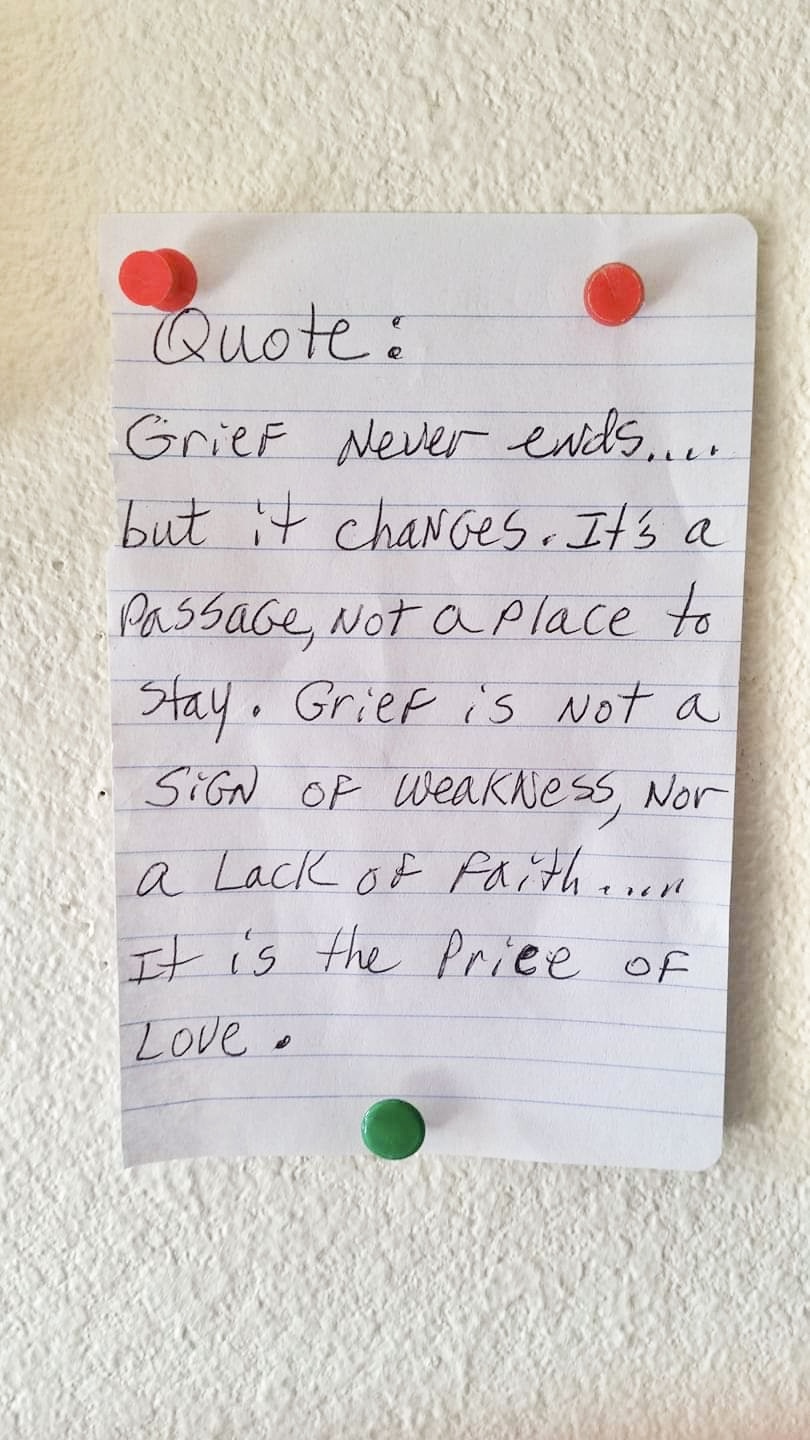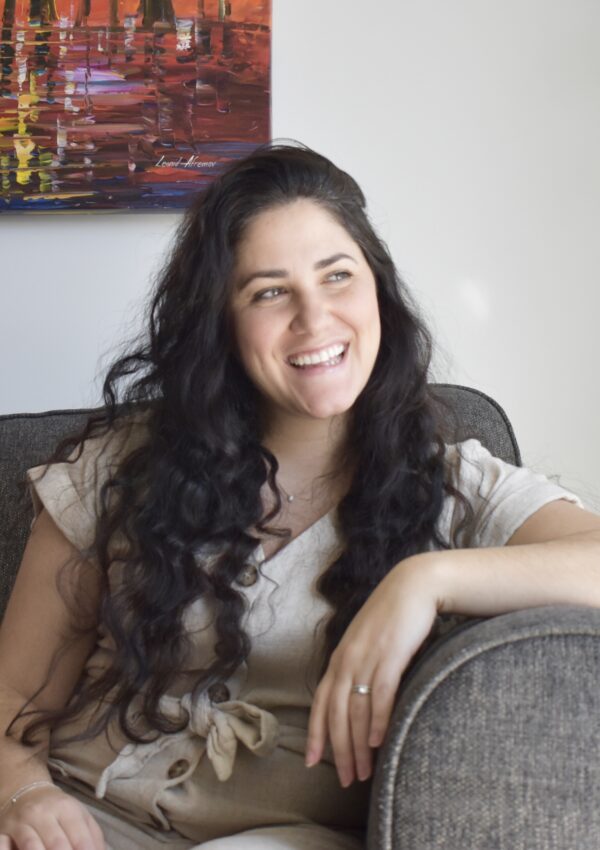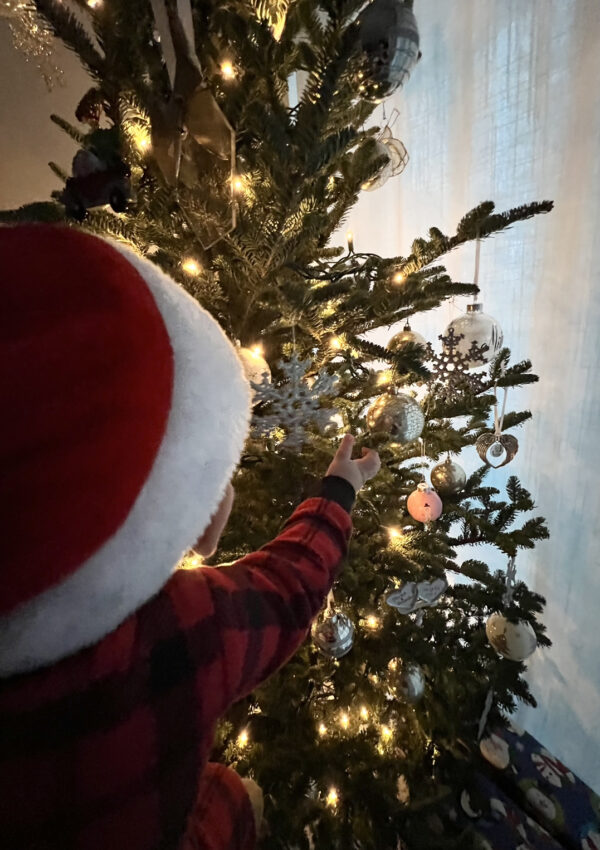A year has gone by – on Friday that is. This Friday coming will make it one year since my grandfather has passed, making it my most difficult and challenging year to date.
While I thought I’d be in a better place with it now, I’d by lying if I said I didn’t cry every now and then, if I said I didn’t visit him at the cemetery because I wish I could turn back time, and lying if I told you I took all of the photos of him from his video that showed at his viewing off my phone. It has been an emotional rollercoaster to try and navigate these feelings and it can get messy sometimes. The passing of my grandfather was the onset of my panic attacks. While those have subsided for the most part, I am extremely careful when I let myself be vulnerable because those emotions can trigger attacks.
Everyone grieves differently – there is no right or wrong way. What works for one person to move forward may not for another. And all of that is okay. You need to find your own rhythm with grief and do what’s best for you because the road ahead is bumpy and not easy. In today’s blog post, I chat about the seven stages of grief – which I didn’t even know was a thing until a year ago. There are moments and reflections of my grandfather in this post so please consider this is your warning if you don’t do well with these topics.
Stage 1: Shock & Denial
I would consider this stage one of the most difficult of the seven. You’re in utter disbelief that your loved one has been taken from you and it hurts. It’s a feeling you cannot fathom and that is absolutely heart wrenching.
In my own experience with my grandfather, I experienced this immediately. With Covid restrictions in place, it was challenging to see him while he was in the hospital. In fact, it was impossible as there were only two people designated to go. There were closer people that needed to be able to see him and it was understandable. But that made for my first visit with him where I was able to hold his hand one where I was standing by his bedside as he took his final breaths. Absolutely gut wrenching and I found myself not being able to breathe. Shaun was with me and held my hand, prompting me to keep talking to him, reminding me that he could hear me. But I was in complete shock that I hadn’t seen my grandfather for months and now all of a sudden I had to say my final words. I didn’t believe it was true. I had so much to say but couldn’t say anything.
Completely dawned in PPE, I couldn’t kiss his hand. Something I couldn’t believe that was happening. I bent over his bed and tried to wrap my head around what was happening and I just couldn’t. That moment has replayed in my head almost everyday for the passed year and in some moments I catch myself wondering if it even happened. I said my final goodbye and later that night went to my grandparents’ house with the rest of my family. I felt like I was watching a movie play out, that this wasn’t my life – none of this was real.
I found this stage to be the most difficult to get through. It took weeks to be able to get out of bed and not cry at the thought that he was no longer with us. A part of me just didn’t want to believe it.
Stage 2: Pain & Guilt
Your mind can play tricks on you. It can make you question whether you did enough with this person while they were here or if you could have prevented the outcome. The guilt that can run through you is enough to knock you off your feet. The pain is unbearable and it hurts to think about your loved one sometimes.
Months after his passing, I began to feel all the guilt – for not visiting more frequently, for not calling more often, or not telling him how much I appreciated his humour. It is very challenging to navigate the emotions of guilt. Because the guilt just turns into pain and the pain isn’t something that anyone can take away from you. This is a stage that you have to sit through and feel the emotions.
Don’t beat yourself up when you begin experiencing this stage, it will eventually pass. But until then, try to remember the good. The good and happy memories are what will help when it seems impossible to move forward.
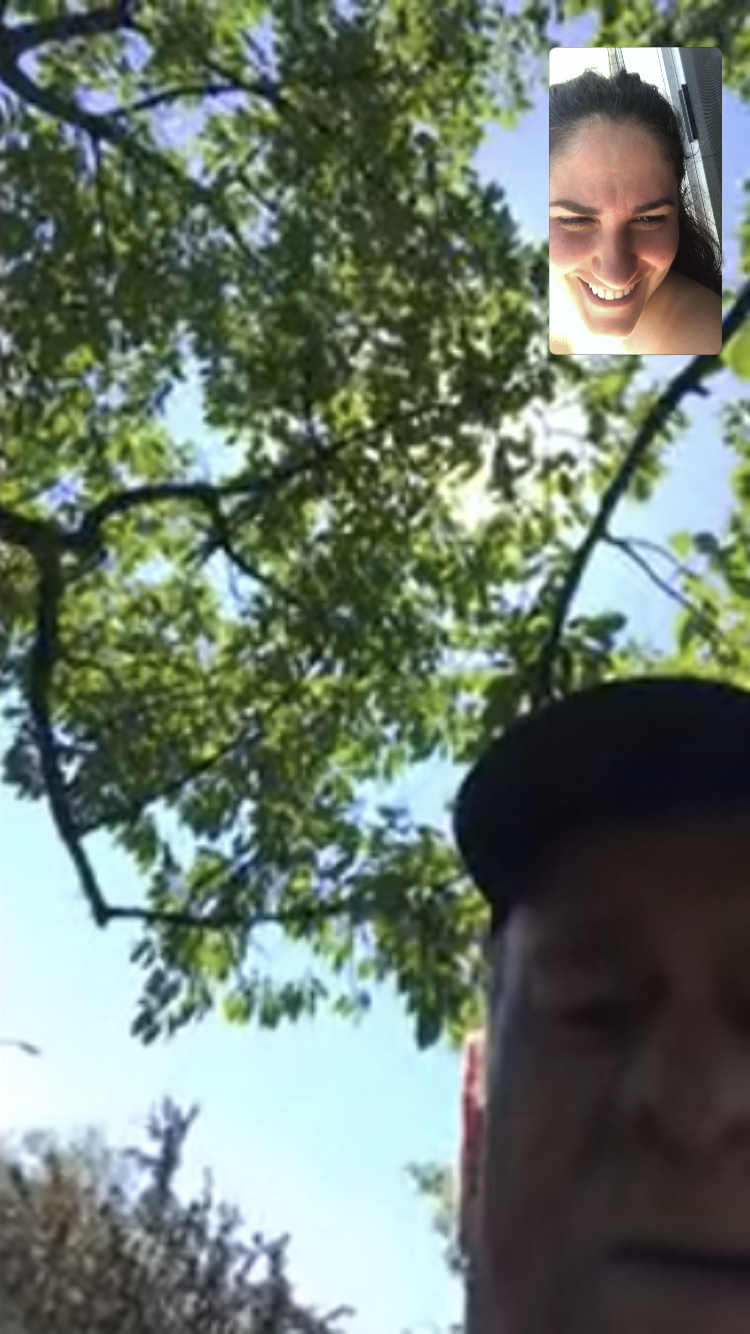
Stage 3: Anger & Bargaining
It’s natural for us to be angry after someone passes. Angry that they’re no longer here, angry that they were taken too soon – the list can go on.
Personally, I stayed in this stage for a long time. The anger that coursed through me was like nothing I ever experienced before. Angry at the world, angry at Covid and restrictions, angry at myself, and even angry at my grandfather because of all the times to go, it had to be during a fucking pandemic.
The anger made me push people away. What would they know about what I experienced or was feeling. They wouldn’t. No one had those last moments with my grandfather that I did. No one got gowned up, given a face shield, and was told that his breathing was slowing down. I hated everyone and didn’t want to talk about much with anyone. I was going to bed listening to Linkin Park bawling my eyes out until I fell asleep. I was picking fights with Shaun because I didn’t know how else to manage what was going on inside me.
Driving home from work one day I had a surge of unspeakable anger. I was blaring Linkin Park again and one part from the song made me scream I was so mad and hurt. It was the first time I had a panic attack while driving. I pulled over and bawled my eyes out on the side of the road. I screamed in my car, I punched my steering wheel. I was so, so angry.
In the kitchen, one more chair than you need, oh
And you’re angry, and you should be, it’s not fair
Just ’cause you can’t see it, doesn’t mean it, isn’t there
linkin park – one more light
You’re allowed to be angry, you are. The world can be an unfair place and sometimes the way things work out just don’t make sense. You can be mad at that. But understand and welcome the company around you that are trying to help. Hard to see, but it’ll be there.
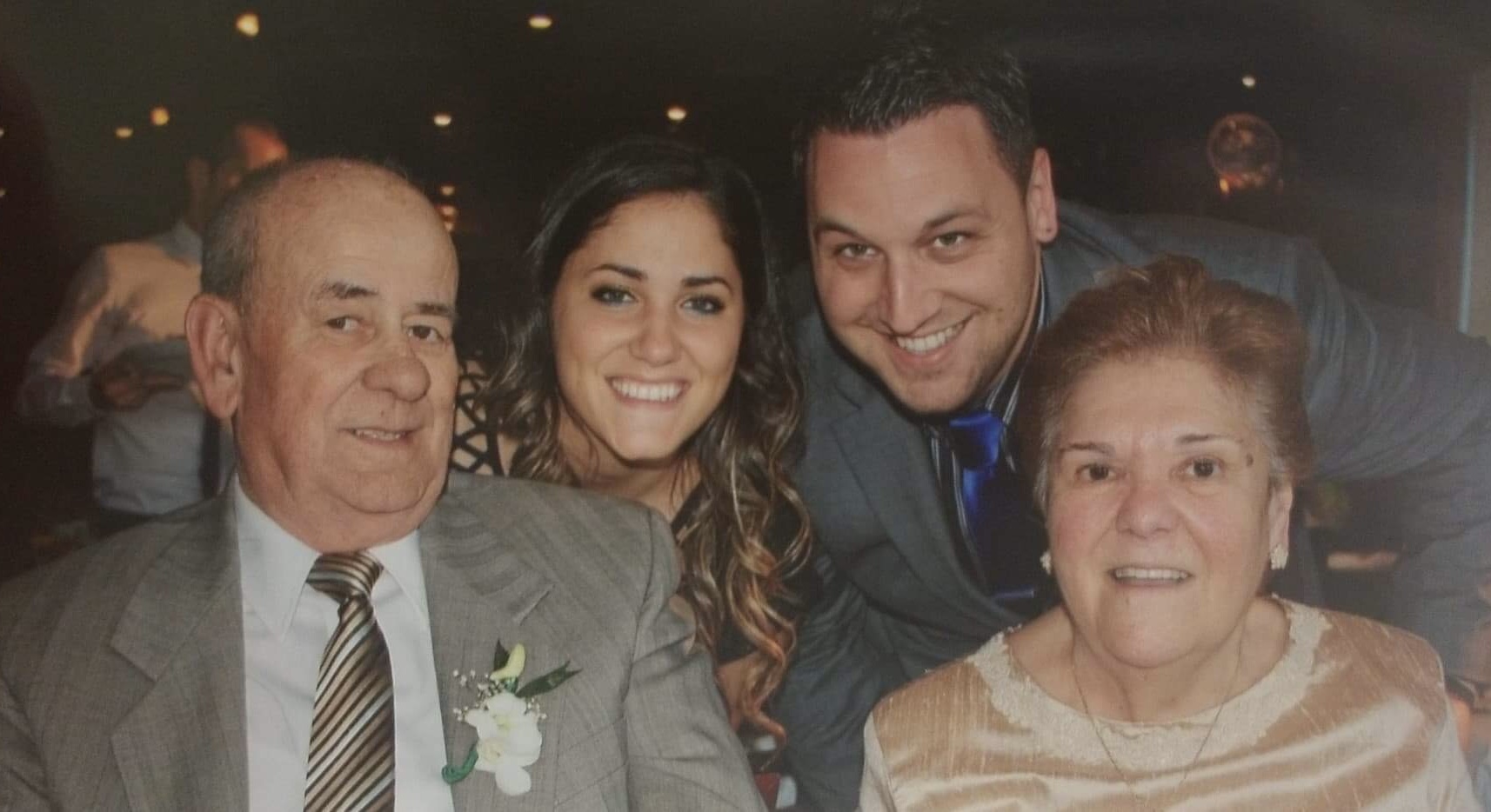
Stage 4: Depression, Loneliness, Reflection
This stage is where true sadness comes in. The stage where you really begin to realize the magnitude of your loss. Fleeting memories and reflections of your time with your loved one surface and it may seem like it’s the only thing you can think about. Some will be happy, some sad – but all impressions that your loved one has left you.
One morning in May, my mom, brothers, and I went to my grandparents’ house to help with the gardening. My grandfather had so much pride in this backyard but it became a huge undertaking as he got older and things became harder to manage. My mom and aunts would do their best to help maintain things and one day my mom asked for our help.
On my way there that morning, I had a panic attack in my car. It was the first time I was essentially going to “hang out” at my grandparents’ house without him being there and that was hard to fathom. Nevertheless, the four of us plugged away in the garden and got to work. They have a corner house which comes with a large backyard. We split into sections and I went to the very far corner of the grass. Literally a corner that never gets used but for whatever reason that’s where I started.
About midday, as I was pulling the weeds from the ground I looked down and somehow in all the dirt, saw a set of keys. My heart began racing as I quickly realized what they were. My grandfather’s old set of car keys for his gardening truck. I had tears in my eyes – it was like he knew how hard it was for me to be there and he pushed me to that corner of the backyard so I could find his keys. So I would know that he’s still with us. My brother put them in a bucket of water to clean them off and I took them home with me. Those keys are probably the best gift I’ve ever been given from him. But all that to say, those keys triggered so many thoughts and reflections. So many wishes and heartache that I hoped would let me be.
Don’t let anyone push you out of this stage. Just like the other 6, this stage is important to feel your emotions and digest everything that comes in waves. Take the signs that you’re given and hold on to them. Take as much time as you need to be sad, reflect, and just feel lonely.
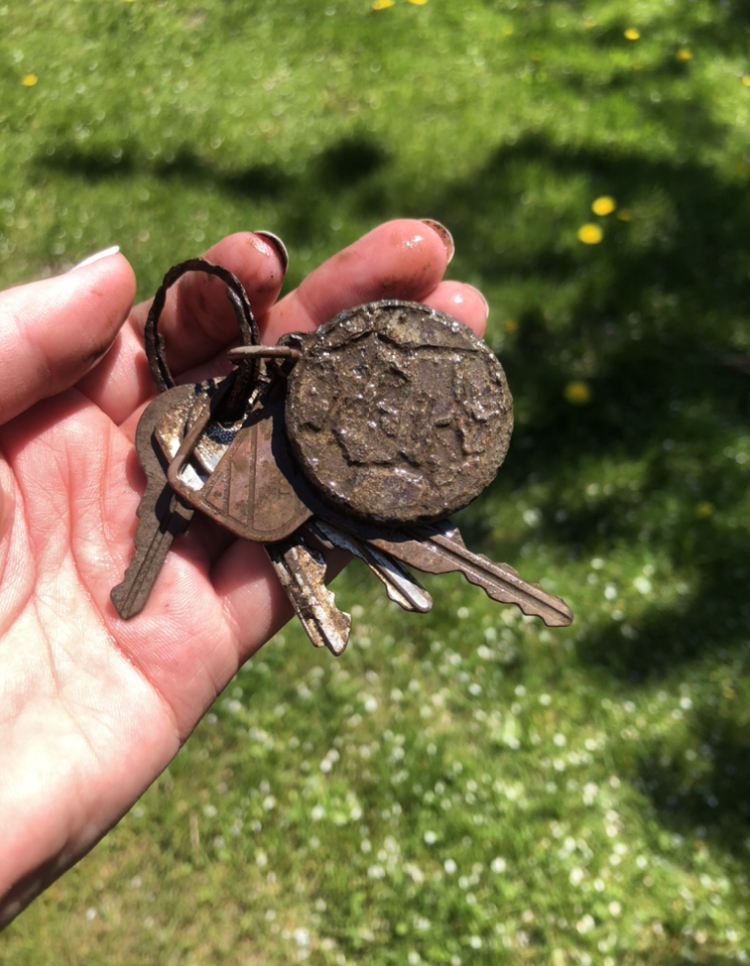
Stage 5: The Upward Turn
You will know you’re in this stage when you’re not counting the days it’s been without your loved one.
My grandfather passed on October 15th and every month leading up to that day, I was extremely anxious. Constantly looking at the calendar, I would say to Shaun, “It’s been 4 months since he’s been gone.” The first time I didn’t pay attention to the date though was July 15th. It could have been that I was super busy with work, or just the simple fact that time heals but on that morning I didn’t wake up with that being my first thought of the day. I knew then that eventually things get easier. Never the same, but the ability to manage such a loss doesn’t feel as heavy as it once did.
I think this is the most pivotal time in the grieving process. It turns the sadness into laughter about your memories and it doesn’t feel as hard to get out of bed or face loved ones anymore.
Stage 6: Reconstruction & Working Through
Through this stage, you begin to live your life without your person. Slowly, life before their passing comes back to you. You’re able to go about simple or more challenging tasks that don’t need your full days energy to complete. You begin to learn how to live your life without them. Although scary at the thought that you might forget them, it’s quite the opposite. Your memories become happy ones and you’re slowly coming out of the heavy, dark fog. Don’t be afraid to move on and work through those feelings. It doesn’t mean you’re erasing them from your memories or life.
Late in the summer months on a day off, I went alone to visit my grandfather at the cemetery. What was previously painful visits a few months prior, something inside me clicked that this was now my new reality of visiting my grandfather. I sat for an hour or so with him as I listened to the sounds around us. The cemetery backs on to people’s houses and I could hear music playing and kids laughing. It instantly brought me back to the memories of when I was younger and would go visit my grandparents on summer days. We would run up to the house and my grandfather would be puttering away in the garage with his old radio playing on the Portuguese station. We would run into the garage, kiss him hello, and immediately go play in the backyard. I felt happy knowing he had sounds similar to those memories close to him.
Your new reality becomes one that you can move forward with. Which brings me to the last stage of grief, Acceptance and Hope.
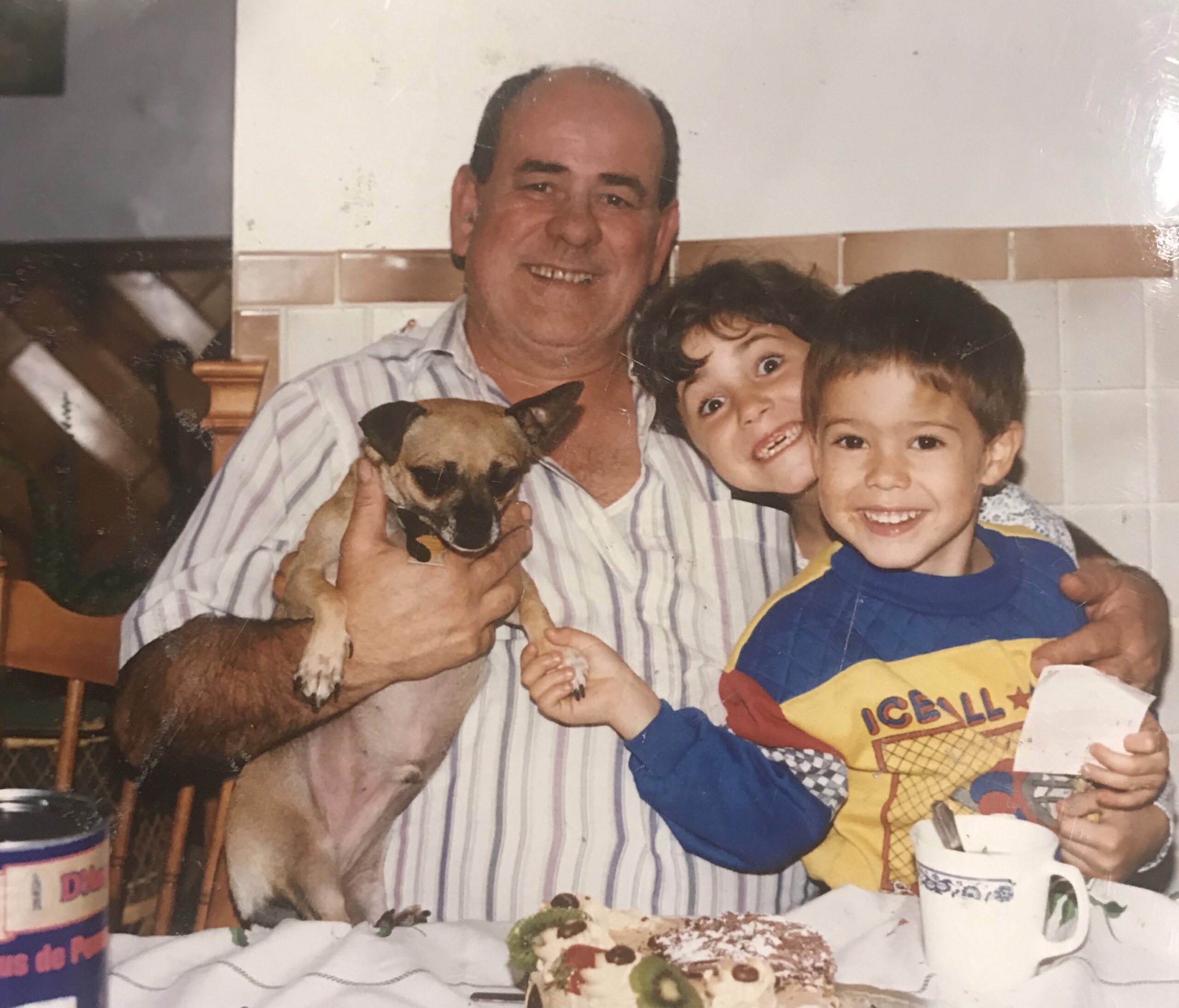
Stage 7: Acceptance & Hope
A funny stage to get to but you eventually begin to accept the things you cannot change and hope for the memories to be forever in your heart. You cannot take back what has happened, you can only move forward. Your new reality becomes one that you may not be happy with but you understand that this is life. You may always feel sad and that’s okay, but you now know there is still life to live after the passing of a loved one.
My hope in getting to this stage is that we as a family continue to share stories about my grandfather. How he was so stubborn, had a sense of humour, and had a heart that he offered to many. I hope that moving forward, although together around the table we’re a chair down, that we’re in abundance of love and stories to share together.

There’s No Right Answer On How to Grieve
I think it’s important to mention in this post that although there are the stages 1-7 of grief, that everyone does so differently. These stages may happen in random order and some may take longer than others to get through. It’s so important to understand that no one person grieves the same.
Just know that although your world seems dark and impossible to muddle through at the beginning, the days do get easier. The sadness may just be part of you when you reflect back on this person, but you’ll eventually be able to see brighter days ahead.
And with that being said, I’ll leave you with this picture I came across on Twitter shortly after my grandfather passed. I think it’s beautiful and important to remember.
